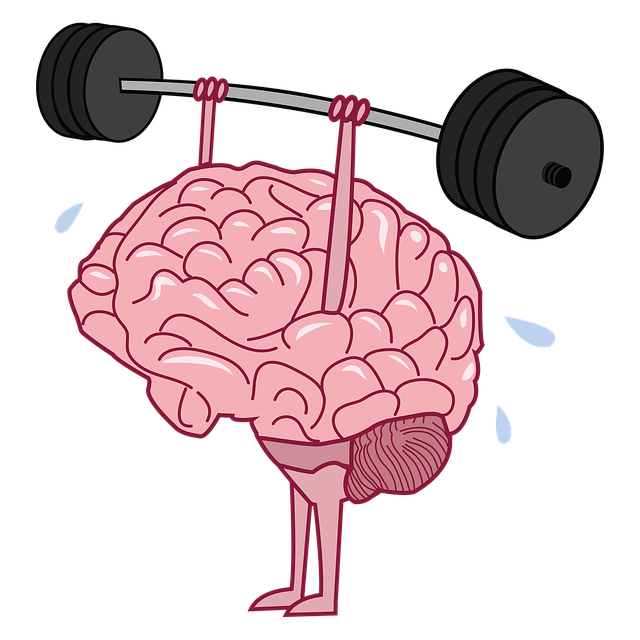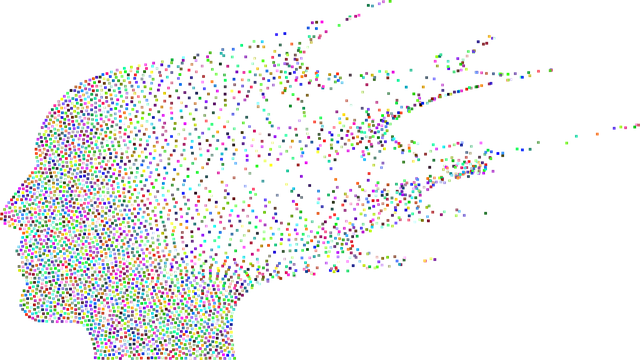Understanding mental health data through digital sources like online platforms, mobile apps, and electronic health records is essential for effective interventions. The process involves meticulous data preparation, including cleaning, transforming formats, and categorizing free-text responses. Analyzing Lone Tree Major Life Transitions Therapy sessions reveals critical shifts in therapeutic journeys, supporting tailored programs such as Depression Prevention, Public Awareness Campaigns, and Social Skills Training. This proactive approach helps individuals navigate significant life events successfully, fostering resilience and healthier outcomes. Integrating qualitative knowledge with quantitative data enhances risk assessment, while ethical considerations ensure patient data privacy and security. Finally, actionable strategies are developed based on findings to design personalized care programs like Lone Tree Major Life Transitions Therapy, promoting self-care routines and resilience-building for diverse populations.
Mental health data analysis is a powerful tool for understanding complex human experiences. This article explores the intricate process of interpreting data, with a focus on identifying patterns in Lone Tree major life transitions using therapy as a lens. We delve into data collection and preparation, analyzing key shifts, and the ethical considerations surrounding privacy. By bridging these insights with effective support strategies, we aim to enhance mental well-being through data-driven approaches, especially relevant in understanding Lone Tree major life transitions therapy.
- Understanding Mental Health Data: Collection and Preparation
- Analyzing Lone Tree Major Life Transitions: Identifying Patterns
- The Role of Therapy in Interpreting Data Insights
- Ethical Considerations for Data Privacy and Security
- Translating Findings into Effective Support Strategies
Understanding Mental Health Data: Collection and Preparation

Understanding Mental Health Data involves a meticulous process of collection and preparation. In today’s digital age, various sources offer valuable insights into individuals’ mental well-being, including online platforms, mobile apps, and electronic health records. For instance, tracking Lone Tree Major Life Transitions Therapy sessions through digital means allows for extensive data gathering on patient journeys. This data can reveal patterns, trends, and critical turning points in their therapeutic process, providing a rich resource for analysis.
Proper data preparation is key to ensuring its quality and consistency. This step includes cleaning the data by handling missing values, outliers, and errors, as well as transforming it into suitable formats for analysis. For example, converting free-text responses from therapy sessions into structured categories enables easier interpretation. In the context of mental health, this process facilitates a deeper understanding of issues like Depression Prevention, which can inform tailored interventions. Additionally, preparing data for analysis supports the development of Public Awareness Campaigns and even Social Skills Training programs by providing evidence-based insights to better serve individuals’ unique needs.
Analyzing Lone Tree Major Life Transitions: Identifying Patterns

Analyzing Lone Tree Major Life Transitions involves a deep dive into understanding critical shifts that shape individuals’ mental health journeys. By examining various data points, researchers and therapists can identify recurring patterns and triggers associated with these transitions. This process is akin to unraveling a tapestry, where each thread represents an emotional healing process or a set of experiences contributing to one’s psychological well-being.
Through such analysis, valuable insights emerge regarding the impact of significant life events, from career shifts to personal relationships and even the incorporation of therapeutic practices like Social Skills Training or Mindfulness Meditation. By recognizing these patterns, mental health professionals can tailor interventions, offering targeted support during pivotal moments in a person’s life. This proactive approach ensures that individuals navigate their Lone Tree Major Life Transitions with resilience, fostering healthier outcomes and enhanced coping mechanisms.
The Role of Therapy in Interpreting Data Insights

Therapy plays a pivotal role in interpreting data insights related to mental health. Through structured conversations and therapeutic techniques, professionals gain deeper understanding into clients’ experiences, behaviors, and emotional responses, which are crucial for contextualizing data trends. For instance, Lone Tree Major Life Transitions Therapy can help individuals process life-altering events, offering valuable insights into their psychological state that might not be evident from raw data alone.
This therapeutic approach goes beyond mere stress management; it fosters mental health awareness by encouraging clients to reflect on their thoughts and emotions. This introspective process allows therapists to identify patterns, assess risk factors, and tailor interventions accordingly. By integrating this qualitative knowledge with quantitative data, mental health professionals can enhance their risk assessment capabilities, ultimately improving care delivery and client outcomes in a dynamic landscape of Mental Health Awareness.
Ethical Considerations for Data Privacy and Security

In the realm of mental health data analysis, ethical considerations for data privacy and security are paramount, especially when discussing sensitive information about individuals’ emotional journeys. As Lone Tree Major Life Transitions Therapy gains traction, healthcare providers must navigate complex ethical landscapes to ensure the protection of patient data. Emotional Intelligence and Emotional Regulation techniques, integral components of therapy, rely on secure data handling to foster trust between clients and therapists.
Healthcare Provider Cultural Competency Training is crucial in this context, as it equips professionals with the knowledge and skills to address diverse cultural needs while maintaining robust security measures. This holistic approach ensures that data analysis contributes positively to the field of mental health support, without compromising confidentiality or privacy rights.
Translating Findings into Effective Support Strategies

Once mental health data is analyzed and interpreted, the next crucial step is translating those findings into actionable strategies to support individuals effectively. This process involves understanding the unique needs and challenges presented by the data, often revealing patterns related to specific demographics or life transitions. For instance, a significant number of young adults seeking therapy during major life transitions like leaving home or starting college can indicate a need for tailored interventions focused on adjusting to new environments and building resilience.
In this regard, healthcare providers play a pivotal role. Incorporating Cultural Competency Training into their practices enables them to offer more personalized care, especially when dealing with diverse populations. By integrating these insights, providers can design programs that promote self-care routine development for better mental health and foster strategies to build resilience among individuals navigating life’s changes, such as those at Lone Tree Major Life Transitions Therapy.
Mental health data analysis is a powerful tool to understand and navigate Lone Tree major life transitions. By carefully collecting, preparing, and interpreting this data, we can identify patterns that shed light on the complex interplay between mental well-being and life events. Therapy plays a pivotal role in translating these insights into actionable strategies for support, ensuring individuals receive targeted assistance. Moreover, adhering to strict ethical guidelines regarding data privacy and security is paramount to fostering trust and safeguarding sensitive information. Ultimately, this comprehensive approach equips us to create more effective support systems, enhancing the well-being of those facing Lone Tree major life transitions.










